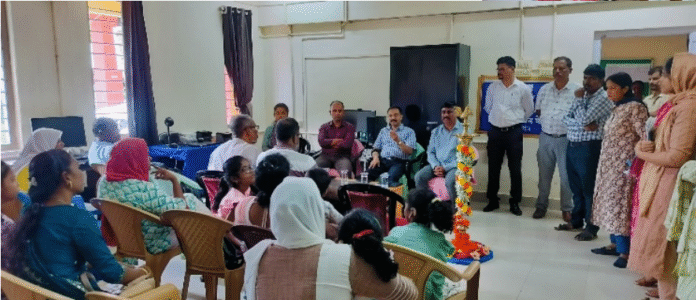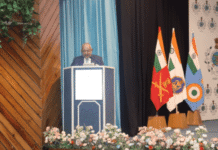A two-day special camp aimed at supporting children with hearing impairments was organized by the Education Department on August 1 and 2 under its Inclusive Education initiative. Held at the Government Girls Senior Secondary School in Sri Vijaya Puram and the Deputy Education Office in Wimberlygunj, the event provided screening, evaluation, and fitting of hearing aids for eligible students.
Designed to facilitate early identification and targeted intervention for hearing issues, the camp brought together experts from medical, rehabilitation, and educational sectors. The objective was to assess children and recommend personalized assistive solutions to enhance their learning and communication skills.
The technical assessment was led by Dr. Ravi Kapoor, a Senior Audiologist from Government Medical College Hospital, Chandigarh, supported by specialists from GB Pant Hospital including an ENT expert and an additional audiologist. This multidisciplinary team ensured thorough clinical evaluation and expert diagnosis for each participant.
Across the two days, 31 children with diagnosed or suspected hearing impairment underwent comprehensive audiological and ENT testing. Clinical recommendations were based on individual assessments, including the need for hearing aids, other assistive listening devices, or advanced medical referrals. As a result, 26 hearing aids were fitted to students requiring immediate support.
Alongside the medical services, the camp also included awareness and counselling sessions. These were aimed at guiding parents, family members, teachers, and special educators in how to best support children with hearing impairments, both at home and in academic environments. The sessions covered strategies for classroom inclusion and ongoing support.
The initiative was conducted under the overall supervision of the Director (Education), A&N Administration, with logistical and field-level support provided by local education officials. The focus remained on ensuring inclusivity in education and addressing barriers that students with special needs often face in mainstream schooling systems.
The camp’s design was in line with national education and disability inclusion frameworks that emphasize early diagnosis and adaptive intervention. Students who benefited from the programme will now have better access to classroom content, improved interaction with peers, and enhanced prospects for holistic development.
This targeted approach also aligns with broader goals of reducing educational inequity and promoting universal access to quality education regardless of physical or sensory impairments. The focus on empowering both the students and their caregivers with information and tools represents a long-term investment in inclusive development.
The camp has set a precedent for integrating healthcare services within the education framework and demonstrates the impact of collaborative efforts between departments.





